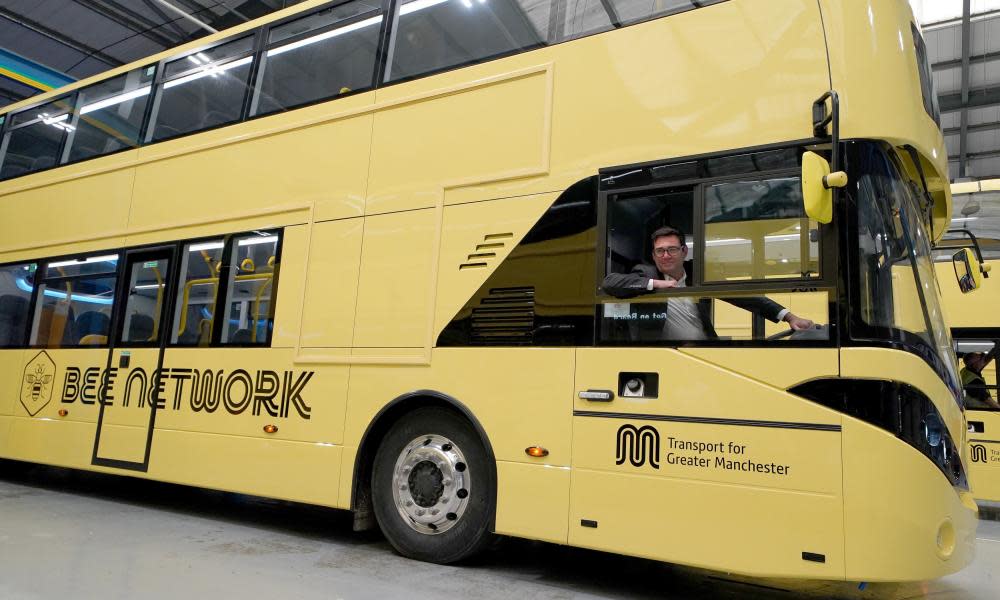Manchester to launch ‘revolutionary’ Bee Network public bus system

The first buses to be brought back into public control in England since deregulation in the 1980s will set out from depots in Bolton and Wigan on Sunday morning.
Greater Manchester will launch its Bee Network, which promises better, cheaper transport with fares capped across an integrated public transport system that combines buses and Metrolink trams.
Greater Manchester’s mayor, Andy Burnham, said the launch of the network – and particularly the introduction of franchising for buses – was “devolution in England coming of age … It’s a major decision that will have a significant impact on people’s lives”.
Routes and timetables will eventually be set by Transport for Greater Manchester for an entire city fleet of yellow buses, and hopes to emulate a joined-up London-style transport system.
From this weekend, services to north-west England – Wigan, Bolton and parts of Bury, and more than half of buses running through Salford – will be franchised. More than 100 new yellow buses will be on the streets, including 50 zero-emissions electric models.
Related: Greater Manchester jumps onboard the franchise route to better buses
The Bee Network app will feature contactless payment and live bus information, and ties in the city’s walking and cycling networks.
Burnham has described deregulation of buses outside London in 1986 as a “disaster” for the city, pointing to the divergent outcomes under different regimes in the subsequent decades.
Passenger numbers almost doubled in London, yet all but halved in Greater Manchester, from 355m to 182m in 2019, even before Covid caused further decline.
City regions under metro mayors were given franchising powers in 2017, but private operators initially fought to stop Burnham going ahead, with Stagecoach trying, and failing, to get a judicial review in the high court last year.
Go-Ahead, which is running the first franchised routes, has seconded dozens of drivers from around Britain to ensure a smooth start, and said it looked forward “to delivering exceptional public transport for Manchester”.
By the start of 2025, all of Manchester’s buses will be franchised, and the city hopes to run local trains by 2030.
The cost of franchising remains a major issue, with an estimated £135m bill for the city, covering buying back depots, investing in buses, and subsidising fares among other things. Fares, with some central government support, are being kept at £2 for a single for at least one year, but the city is looking for higher long-term passenger numbers to allow it to keep the prices down.
To mark the launch, transport campaigners are preparing to stage celebrations on Sunday outside bus depots and local authority offices.
The Better Buses for Greater Manchester campaigner, Matthew Topham, said: “Finally, someone has hit the brakes on Thatcher’s disastrous experiment with deregulation.”
He said fares had doubled in real terms while the bus networks had shrunk since deregulation. Other mayors were hoping to follow Burnham’s lead for “their region to be the next stop on the journey to making all Britain’s buses work for people, not profit”, Topham said.
Burnham described the change as “a line being drawn. We hope that the arrival of the Bee Network will signal a start of revolution in public transport, and we stand ready to help.”


